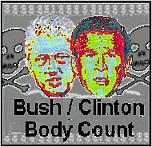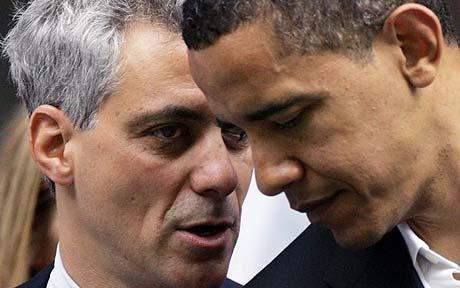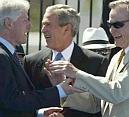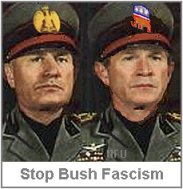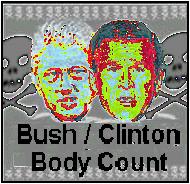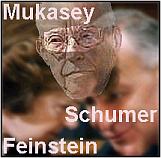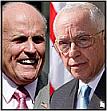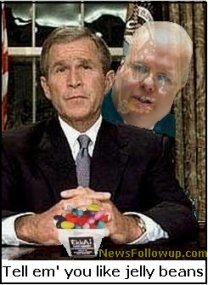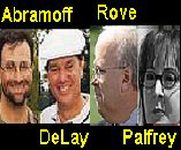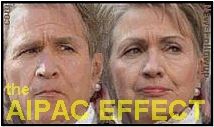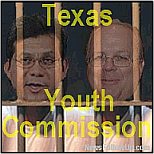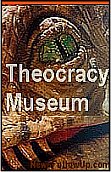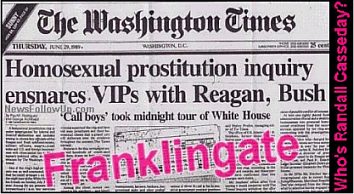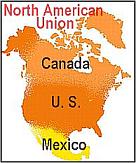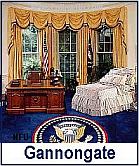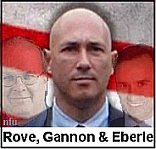In an attempt to work out a solution to the problems facing the world today, it might be well to study the basic causes underlying the difficulties to which we have been subjected in the past. The problems facing the world include the badly unbalanced economic and social order, and the problem of world peace. Perhaps these are but two parts of the same problem. An attempt will be made to analyze some of the causes underlying the difficulty.
Professor Elton Mayo of Harvard University in his book "The Social Problems of an Industrial Civilization" says, "In the primitive community, or in the American and European communities of a century or more ago, group codes determined the social order of things and the direction of individuals' lives, the interests of the individual were subordinated, by his eager desire developed in infancy, to the interests of the group; and in return the group gave him stability, an assured function, and opportunity for satisfying participation. It was an established society. By way of contrast, the typical industrial community of today is an adaptive society comprised of individuals of varied origin, many of them moving several times from one group association to another in the quest of education and jobs. Difficulties of relating themselves to others and subsequent solitariness and unhappiness characterize many of these people. Many come to a fundamental assumption that the world is hostile; some react by over-aggressiveness, others tread too carefully; and groupings frequently form in an attitude of wariness or hostility to other groups. Social skill (that is our ability to secure cooperation between people) has disappeared. The established society by its apprenticeship system developed technical and social skills simultaneously in the individual; but in the adaptive society there has been an unbalance between the development of technical and of social skills. The consequences for society have been disastrous. If our social skills had advanced step by step with our technical skills, there would not have been another European war".
If these statements are true, an attempt should be made to learn something about the social skills that will help mankind better to cooperate in their economic activities and thus to develop a social organization which will be based on understanding and the recognition of the rights of all other members of society.
Professor Mayo goes on further to say, "Until such time as sociology and psychology can, out of lowly and pedestrian skills, develop the beginning of understanding, we shall continue to find technical advance provocative of social chaos and anarchy. It is not the atomic bomb that will destroy civilization. But, civilized society can destroy itself, finally--no doubt, with bombs--if it fails to understand intelligently and to control the aids and deterrents to cooperation". There has been much tinkering by legislation, the emphasis being mostly economic. Instead of teaching people how to cooperate on the basis of the Golden Rule, the trend has been to force cooperation by dictator methods. While there have been many problems to be solved due to abuses which have arisen in our social order, the attempt to manage the lives of men has resulted in a situation wherein the cure is worse than the disease.
During the past ten years experiments in social legislation have trespassed more and more on the individual's rights. For a small amount of economic security, the individual has sold his birthright of freedom of choice. There are two schools of thought; one is that the citizen has no rights which the State is bound to respect; the other is that the citizen has rights which are inviolable by the State or by any other agency. In a preface to his essays, written in 1884, Herbert Spencer has a paragraph which sums up with remarkable completeness the political history of the United States during the last six years:
"Dictatorial measures rapidly multiplied, have tended continually to narrow the liberties of individuals; and have done this in a double way. Regulations have been made in yearly-growing numbers, restraining the citizen in directions where his actions were previously unchecked, and compelling actions which previously he might perform or not as he liked; and at the same time heavier public burdens, chiefly local, have further restricted his freedom, by lessening that portion of his earnings which he can spend as he pleases, and augmenting the portion taken from him to be spent as public agents please."
In an introduction by Albert Jay Nock to a recent edition of "The Man Versus The State" by Herbert Spencer, Mr. Nock says, "Statism postulates the doctrine that the citizen has no rights which the State is bound to respect; the only rights he has are those which the State grants him, and which the State may attenuate or revoke at its own pleasure. This doctrine is fundamental; without its support, all the various nominal modes or forms of Statism which we see at large in Europe and America -- such as are called Socialism, Communism, Nazism, Fascism, etc., -- would collapse at once. The individualism which was professed by the Early Liberals, maintained the contrary, it maintained that the citizen has rights which are inviolable by the State or by any other agency. This was fundamental doctrine; without its support, obviously, every formulation of individualism becomes so much waste paper. Moreover, early Liberalism accepted it as not only fundamental, but also as axiomatic, self-evident. We may remember, for example, that the U. S. Declaration of Independence takes as its foundation the self-evident truth of this doctrine, asserting that man, in virtue of his birth, is endowed with certain rights which are 'inalienable'; and asserting further that it is 'to secure these rights' that governments are instituted among men."
In my opinion it is the duty of government to protect the citizen in those rights. It should not so limit him in his rights that the State becomes his master rather than his servant. The tendency in recent years has been in the direction of making the State the master of the individual. Mr. Nock goes on further to say, "It can be plainly seen in England - a condition in which social power has been so far confiscated and converted into State power that there is now not enough of it left to pay the State's bills; and in which, by necessary consequence, the citizen is on a footing of complete and abject State slavery. The reader will also perceive what he has no doubt already suspected, that this condition now existing in England is one for which there is apparently no help. Even a successful revolution, if such a thing were conceivable, against the military tyranny which is Statism's last expedient, would accomplish nothing...... There have been many revolutions in the last twenty-five years, and this has been the sum of their history. They amount to no more than an impressive testimony to the great truth that there can be no right action except there be right thinking behind it. As long as the easy, attractive, superficial philosophy of Statism remains in control of the citizen's mind, no beneficent social change can be effected, whether by revolution or by any other means."
There are those who may say that the body, which regulates them, is of their own creating and has been elected by them to do the ruling. The real issue, however, is that fundamental liberties are being interfered with by an ever-growing monster of bureaucracy. Herbert Spencer, in his book, says: "In the first place, the real issue is whether the lives of citizens are more interfered with than they were; not the nature of the agency which interferes with them. Take a simpler case. A member of a trades' union has joined others in establishing an organization of purely representative character. By it he is compelled to strike if a majority so decide; he is forbidden to accept work save under the conditions they dictate; he is prevented from profiting by his superior ability or energy to the extent he might do were it not for their interdict. He cannot disobey without abandoning those pecuniary benefits of the organization for which he has subscribed, and bringing on himself the persecution, and perhaps violence, of his fellows. Is he any the less coerced because the body coercing him is one which he had an equal voice with the rest in forming?
"......... If men use their liberty in such a way as to surrender their liberty, are they thereafter any the less slaves? If people by a plebiscite elect a man despot over them, do they remain free because the despotism was of their own making?. ......."
There is no doubt but that many of the laws passed to control business arise out of certain difficulties or basic causes. They need to be studied and a solution arrived at in a sensible, impartial, unprejudiced manner. The questions of labor unemployment, security, costly competition, carried on for individual profit with no regard for the rights of society or the real liberty of human beings need to be faced. Allan G. P. Fischer, in his book "The Clash of Progress and Security" says, "The indifference with which capitalistic society has contemplated the sacrifices of individuals ruthlessly pushed aside in the path of material progress constitutes indeed one of the most formidable indictments which can be levied against it." Business can blame itself for much of the present legislative trend. All too often it has treated labor as a commodity to be bought and sold without regard to essential human values. The human values will not be denied. Business men must choose whether they themselves will shoulder the responsibility or whether they will force government to do so. To save our democratic way of life we must remove the causes that threaten to injure or oven kill it. Democracy is not self-sustaining; selfishness defeats democracy. It will only endure if we respect the other fellow's rights.
The war has merely obscured but has not cured the cancer which is gnawing at the very vitals of our economic system. This is the hard core of unemployment which has developed because we have not recognized the social problem which has arisen because of technological development. At the present time because of difficult labor laws which regulate business, businessmen consider each individual they add to the payroll as an added problem. In order to eliminate as many of these problems as possible, each employer is doing everything he can to develop machinery and devices to eliminate the labor factor. He, however, does not realize his social responsibility to the individuals who will be thrown on the permanent relief rolls because they have been replaced by machines. Business on the whole has not assumed its share of the social responsibility resulting from the development of mass production. In the book "Men Without Work", published by the Pilgrim Trust in England, found with respect to individuals unemployed more than a year that "(1) they are not reabsorbed in anything like the same proportion as the short-time unemployed when better times return. Their problem involves not only an economic burden but moral decay." Labor is not a "cold storage" commodity.
Prior to the war in the States the percentage of men unemployed for one year or more was constantly increasing. There is much to be done to adapt the machine technique to enrichen individual life. The economic side of life needs to be considered as the means to an end rather than the end, life itself. There are indications in well-informed circles that the question of human behavior is being given considerable thought. Perhaps out of such studies will develop a science of human relations which will go far towards correcting the underlying difficulties with the result that greater cooperation will result both nationally and internationally.
In a very able address made by Dr. Simeon E. Leland, Dean of the College of Liberal Arts, Northwestern University, among other things he said, "Human behavior is, indeed, a major problem for continued consideration. It should bring together not only anthropologists, sociologists, psychologists, economists, and other social science groups, but the biologists, the medical scientists, the lawyers, and others with related interest. The humanists, too, may help us better to understand the relations and conduct of man. Joint research is essential if real progress in understanding human behavior and its consequences is to take place. From this broad field come the conflicts in human relations so prevalent in social and economic areas. Few issues, for example, have the transcendent importance of present relations between labor and capital. Both groups must learn how to work with each other, as well as with government as an interested third party. Labor and its leadership must learn more of the fundamentals of economics; capital must learn better how to govern its workers more democratically and how to deal with them en masse; government must learn to protect the rights of the unorganized and to guard social interests from the consequences of industrial conflict without at the same time becoming involved in the struggle. We shall be working at these problems for some years.
"The relations of business to government and the control of business by government both need attention. Between these groups there is current much misunderstanding. Some of the controversies have generated volcanic heat..... "These problems of human behavior, of labor relations, of government and business, are problems, too, in mass democracy. As never before the conduct of people in large numbers is being determined, in pact, by social and economic pressures, as well as by long-standing political attitudes and institutions. The results are uncertain; the existing techniques of control are imperfect; the obligations and rights of the parties are likewise obscure. Over a broad front, involving much more than our political institutions, these problems need examination. This has never been clearer than today when we are trying to construct a world government, and reconstruct at the same time the shattered political and economic organizations of Europe, of Japan, and of other parts of the world. The control of war, or the continuance of peace, requires unceasing academic attention. Granted that we know what should be done, which is only being assumed, it is a superhuman educational undertaking to convince the world that the appropriate steps, indicated by qualified scholars, should be taken."
Mr. John Foster Dulles in a commencement-day address before the College of the City of New York of June 19, 1946, said, "The Soviet Union is conducting a great experiment in what is called 'democratic dictatorship' or 'dictatorship of the proletariat'.......
The result, it is claimed, is a homogeneous, docile and productive mass which has peace and security. It has peace because discordant thinking is eliminated before it can lead to discordant action. It has security because planned productivity is imposed........ There is an understandable nationalistic desire to enlarge the Soviet Union and to surround it with satellite states.
There is an honest belief that individual human freedom is a basic cause of human unrest and that if it (human freedom) is taken away it will promote worldwide peace and security.......
"That challenge to freedom which stems from the Soviet Union is formidable. In part, it attracts because of its new and bold attack on unsolved social problems. ....... But the challenge is formidable principally because societies of freedom have developed weaknesses which have caused a widespread loss of faith in them.
"Those weaknesses are primarily in the field of economics. In much of the world, indeed in most of the world, there is a single human problem-- that is the elemental problem of how to keep physically alive."
Mr. Dulles goes on to indicate that due to two world wars, the material wastage and dislocation have been such that the basic necessities of life are everywhere scarce. That there is actual starvation and severe privation is well known. He goes on to say, "Under those conditions, there is no great interest in spiritual, intellectual and political freedoms which men can neither eat nor wear." He states that the question is being asked, "Will not individual freedoms inevitably be abused or used so thoughtlessly as to wipe out our slim chance for survival?"
He further asks, "What is the explanation of what has taken place?"
He says, "It is basically that in our land and in other free lands, individual human beings have increasingly failed to exercise the selfrestraints, self-discipline and self-sacrifice which are necessary if individual freedom is to be socially tolerable." "We all agree that the exercise of freedom must be limited. The point is, by whom and by what, shall it be limited? If a society is to be free, the limitation must primarily be self-limitation. A free society, of course, has man-made laws. In this country and in England, we have what we call the 'common law'.
What is common law? It is nothing that you can find in the statute books. No 'politburo' decreed it. The common law is unwritten law. It is custom. It is the standard of conduct which the great majority have already voluntarily adopted to control their own behavior. "The basic controls of a free society are the acceptance by individuals of the moral law. The fundamentals of that law appear in all our great religions, notably the Christian and Hebrew faiths. The Hebrew faith has given us the Ten Commandments which are perhaps the great expression of the concrete applications of the moral law. The Christian Faith has added the broad injunction 'thou shalt love thy neighbor as thyself' and 'whatsoever ye would that men should do to you, do you even so to them, for this is the law and the prophets', Thus, the Creator. who endowed men with certain inalienable rights also commanded that those rights should be used, not selfishly, but with regard for others."
Mr. Dulles goes on further to say, "The reason why our society of freedom has lost its prestige in the world is primarily because our people, over recent years, have lost much of the self-control and selfrestraint which were characteristic of the last century. We laugh about the Puritanism and the austerity of the past. But that was the way our forebears trained their moral muscles for the struggle for freedom. Today those muscles are flabby. We have a great deal of so-called education, but that education has too often become a more memorizing of facts which, it is hoped, will be of practical utility. Our system of education has largely broken contact with the great faiths and beliefs of the past and with the great teachings of the moral. law."
We have a wave of social security legislation which would undertake to run our lives from the cradle to the grave with the resulting abridgement of our liberties on a progressive scale. There are many who are willing to sell their birthright of freedom of action in exchange for the assumption by the State of responsibilities which every ablebodied person should perform for himself. To again quote Herbert Spencer, "..... There is a notion, always more or loss prevalent and just now vociferously expressed, that all social suffering is removable, and that it is the duty of somebody or other to remove it. Both these beliefs are false. To separate pain from ill-doing is to fight against the constitution of things, and will be followed by far more pain. Saving men from the natural penalties of dissolute living, eventually necessitates the infliction of artificial penalties in solitary cells, on tread-wheels, and by the lash. I suppose a dictum on which the current creed and the creed of science are at one, may be considered to have as high an authority as can be found. Well, the command 'if any would not work neither should he eat', is simply a Christian enunciation of that universal law of Nature under which life has reached its present height-the law that a creature not energetic enough to maintain itself must die: the sole difference being that the law which in the one case is to be artificially enforced, is in the other case, a natural necessity. And yet this particular tenet of their religion which science so manifestly justifies, is the one which Christians seem least inclined to accept. The current assumption is that there should be no suffering, and that society is to blame for that which exists.
"...... Moreover, I admit that the Philanthropic are not without their share of responsibility; since, that they may aid the offspring of the unworthy, they disadvantage the offspring of the worthy through burdening their parents by increased local rates." There has been a growing tendency to want to run other people's lives. This desire often starts with a false sense of sympathy for what these reformers think are unfortunate people. Want is often avoidable.
It is many times the result of people's unwillingness to do their part in carrying on the world's work. If one benefits from the labor of others, he in turn must make a contribution to the extent of his ability. In fact it is his social responsibility to develop himself to the highest possible efficiency commensurate with his natural ability. Instead of teaching these people to be self-reliant and self-sufficient, the reformer assumes that most people need a guardian, and he, the reformer, appoints himself as that guardian. The would-be dictator always tears down confidence in the individual and this is the first step toward a state-controlled society. Wrong teaching breeds discontent which eventually leads to revolution. There grows up in the mind of these folks a very great desire for more and more economic power and development of a great bureaucratic government to run the lives of individuals. We have seen in our very recent history how this growing desire for economic power breeds and develops desire for military power.
The development of such power develops the desire to have the right to control such power with the result that we have a battle for the balance of power, both nationally and internationally.
The net result is world chaos.
The first step in eliminating war is to remove the causes which create the conditions out of which dissension, strife, and ultimately war develops. Human freedom is the only lasting answer to the problems of peace. Men will eventually revolt against the oppression which results from any type of dictatorial government. As has been indicated in this discussion, the need for the development of social skill is most necessary.
Can Free Masonry help? I think it can. Free Masonry is a progressive moral science. It is a builder of character using its emblems and tools as symbols of great moral and spiritual truths. It attempts to build upon the earth a kingdom of righteousness and goodwill under the direction of the Supreme Architect of the universe.
In a talk delivered by the Rev. Joseph Fort Newton to members, families and neighbors of the Evans Lodge No. 524 of Evanston, Illinois, on the 17th of February, 1915, the Reverend Brother made the following statement: "As Masonry is not a political party, so it is not a church, unless by 'Church' we mean as John Ruskin said: ''Wherever one hand clasps another helpfully and hopefully, there is the one, true, holy mother church". If we use it in that sense, then we might describe this Order as a church. But using the word 'church' in its more exact and specific sense, it ought to be said and made perfectly clear that Masonry is not church of any one religion. It finds good in all religions. It lays emphasis upon that which is common to all religions, that which underlies all sects and overarches all creeds, and though it is not religion it has preserved some things that are indispensable to the advance of religion. One of them is the right of every human soul to seek for the truth, by which every man must be guided, and to look up from the lap of truth into the face of God, and be free.......
At another point in his address, Dr. Newton said, "Above all creeds that divide, all bigotries that becloud, Masonry has tried to write the one universal gospel of the Fatherhood of God and the brotherhood of man, the moral law, the Golden Rule and the hope of life everlasting..,...
"The religion in which all men agree. This is the religion that is talked in the Masonic Lodge. Therefore men of every sect and church find welcome at this altar, and there confess their own God, the Father of all. They meet as brothers not as sectarians, not as members of parties. The mission of this order is not to divide men but to unite them, to refine and exalt their faith, to turn them from the semblance of life to homage for truth, for duty, for character, to establish then in attitudes resulting in all the relations of fellowship of life. "....... It has one purpose, to remove the misunderstandings between men and make them friends, to teach man to know his fellow man, believing that when they know each other they will love each other......
The tragedy of the world is not that men are ignorant, not that they are poor, for who is wise and who is rich?
It is that they are strangers.
My friends, when men come to knew each other it is very hard for them to hate."
What greater basis than this for developing a great science of human relations?
Dr. Newton, in another place in his speech, said, "The way out of war is by promoting and deepening fellowship and good will among men, without regard to race, or religion, or condition of life. Above all races, above all religions, above all royalties, is humanity, greater than all of them."
Free Masonry has a challenge, greater perhaps than any it has ever faced in all history. God grant that each member will strive to make his contribution toward world peace. The desire for peace arises in our own heart. It is then developed down through his family relationships, his church, his lodge, city, state, nation, and then the world. There can be no peace in the world unless there is that real desire in the hearts first of individuals. There can be no right action unless there is first right thinking. May we as Free Masons make our contribution toward the development of unselfish, constructive thought

